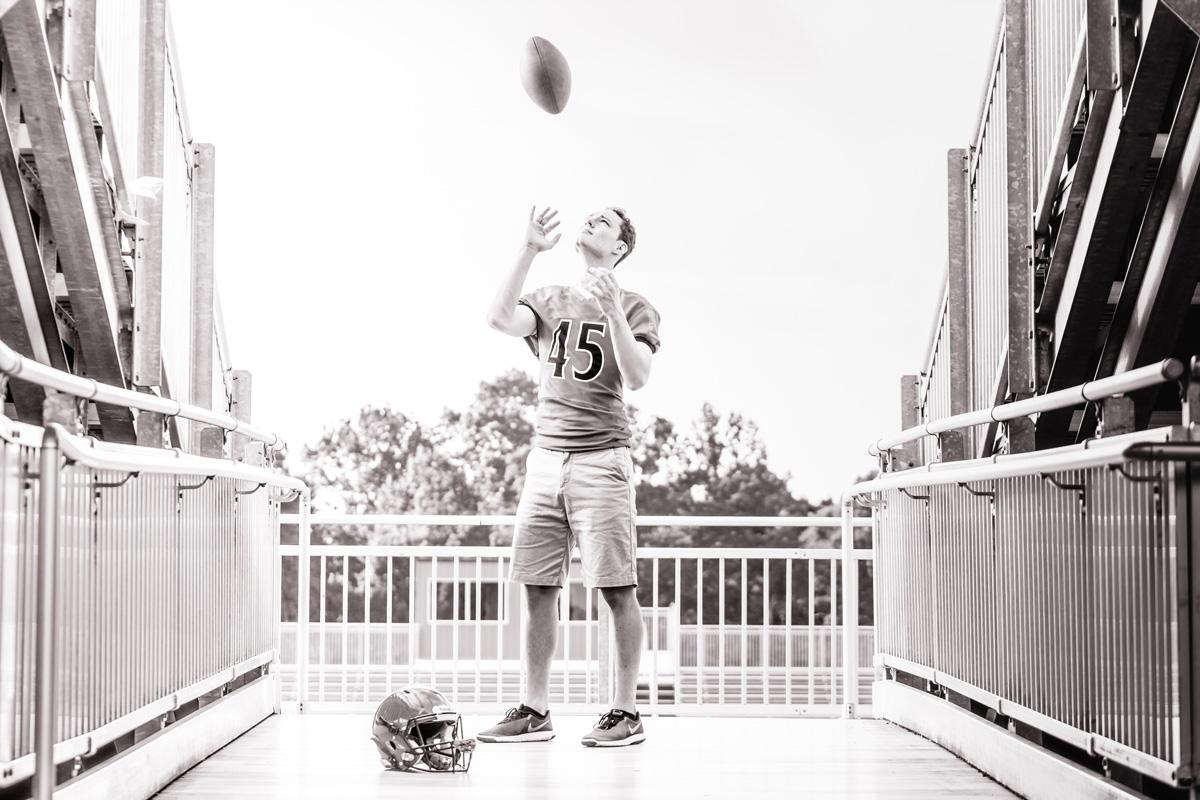
I don’t know about you, but where I live, sports are a big deal to students and their families. It isn’t uncommon for sports, not the church, to hold a higher priority in the life of a student.
This often times makes youth workers believe that sports is this great enemy of youth ministry.
I am well aware that I am not the only one who battles with this problem. And this is not the article that is finally going to equip youth workers with the right words to convince your students and parents to ditch the voluntary practice for youth group. Rather, and perhaps surprisingly, I’d like to offer you an encouragement about how truly spiritually transformational sports can be in the lives of our students. Sports, perhaps more effectively than any other medium outside of church, have the great potential to shape the liturgical lives of our students.
What is a liturgy anyway?
It’s “a rite or body of rites prescribed for public worship.” And to be liturgical is to hold to a certain set of rites or body of rites. I am a pastor in the Christian Reformed Church and whenever we practice the sacrament of the Lord’s Supper, or baptize another member into our covenant family, we read from the liturgy. Often times, people think that liturgy is dry, boring, repetitive, and too “old school.” However, the liturgy is a document breathing with life, bringing us together in unified worship no matter who we are. The liturgy defines our role before a holy and perfect God. It sings the story of our faith throughout the ages.
It’s like sports practice: with each repetition we are becoming more prepared to worship God together as a church body.
Consider for a moment what one does to prepare for a sporting event. If you are participating, you begin practice the day or two after your last game in order to prepare for the next. You internalize the strategies you’ll utilize when you’re in action. You visualize what success looks like long before the moment comes. You warm-up with the same stretches. If you’re in a group sport, often times you’ll chant a word of encouragement that you’ve all memorized, in order to direct your focus as a group. When the moment comes and your event starts, your hope is that instinct will take over, your muscle memory will come through for you, and that performing at an efficient level is simply second nature. As the competition is taking place, especially in the context of a team sport, you are constantly aware that the event is not exclusively about you, but about the group of people. When you win, you celebrate with each other. When you lose, you grieve with one another.
Now, consider these same characteristics as they relate to our Sunday worship and church membership. Imagine preparing for next week’s worship the day or two after we left on Sunday morning. Imagine internalizing the words of scripture we find in our catechisms and the blessings given by the pastor at the end of a service. Imagine what it would look like to visualize your role in the life of a newly baptized member when you assume responsibility before God and others during the sacrament. How often have we heard our call to worship as a chance to ‘warm-up’ before worship? When is the last time we’ve greeted one another with the peace of Christ with the same reverence as a group chant? Can you recall the last time your worship felt like second nature on a Sunday? As if there was no difference between practice and the game? Imagine the profound impact it would be to celebrate each win we experienced, and imagine the comfort we could offer one another if we grieved together with every loss.
Sports teach us something profound about our spiritual lives.
Order, structure, and intentional repetition matters; liturgical worship offers us this order, structure, and repetition. As youth workers, we can clearly see that our students have the potential to worship something with all their attention, time, and ability (as evidenced by their commitment to sports).
As youth workers we need to cease our blaming of sports, and we need to begin to embrace the lessons that sports teach us and look for ways to integrate these disciplines into our worshipping life! Rather than competing with sports, why don’t we throw a bit of what sports trains us for into our spiritual direction for our students?
While I don’t desire to compete with sports, the reality is that we as youth workers already have the upper hand. What is the ultimate goal of sports? Why all the hours of training? It’s in the hope of securing victory… The message we have to offer is that Jesus has already secured a victory on our behalf. Through His death and resurrection, we can eternally rejoice in our victory together.



